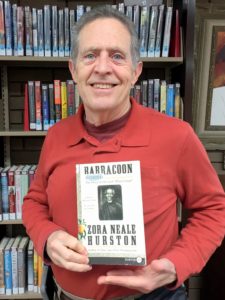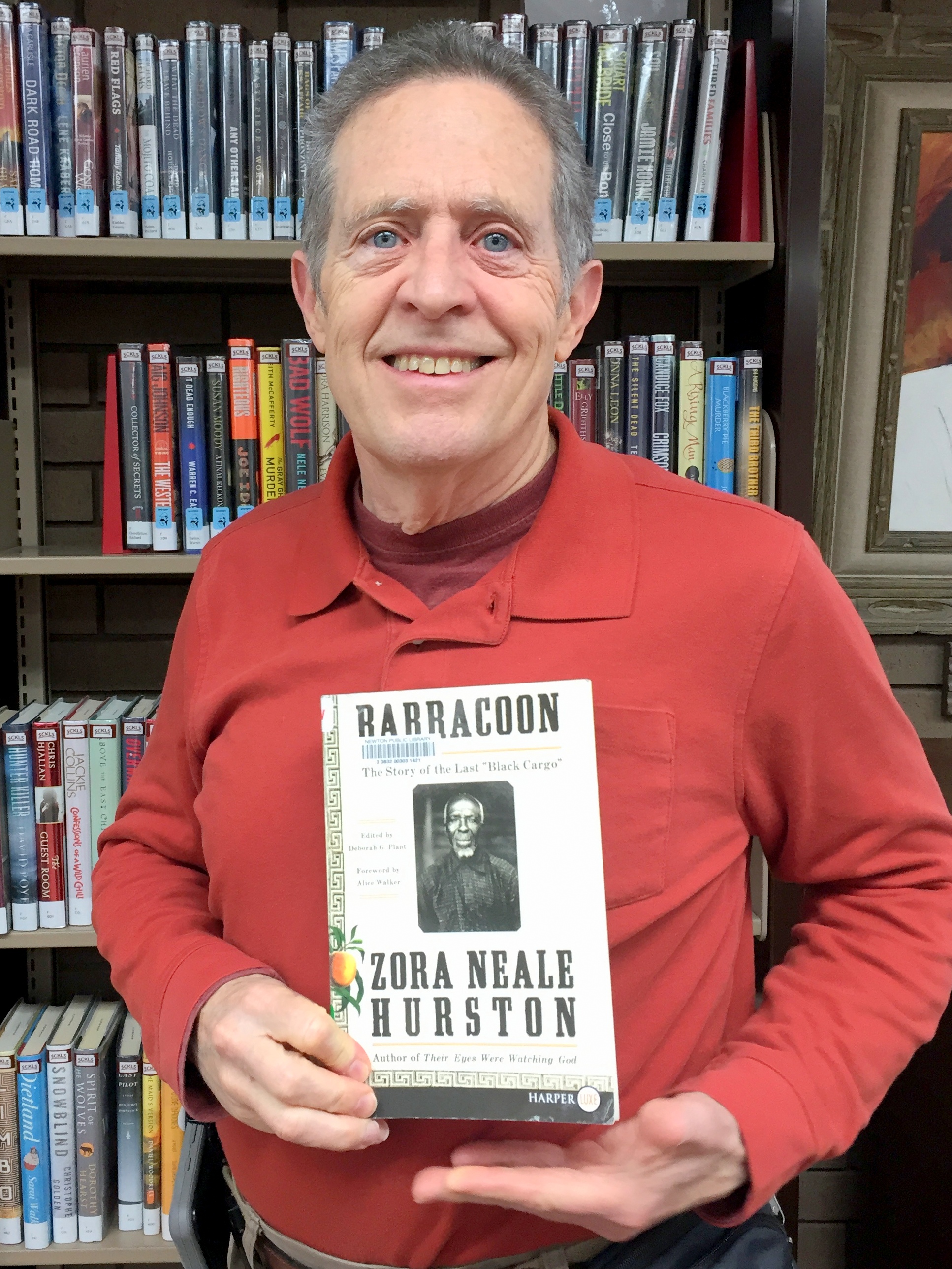
— Steve Richards reviews “Barracoon” (306.362 Hurston – also available in Large Print) by Zora Neale Hurston
Kossola, AKA, Cudjo Lewis, arrived in Alabama in the last known shipload of slaves to make it through the blockade in the 1860s. This was after importation of slaves became illegal. Barracoon, The Story of the Last “Black Cargo,” is his story and much more.
Zora Neale Hurston gained Kossola’s trust, listening through many visits, to gather his unique perspective. She assembled this memoir, as told to her, with skill as an anthropologist, author and researcher. Kossola was born around 1841, in the Dahomey region (now Benin) of western Africa.
Hurston worked for the privilege of his conversations in 1927. It is one of a handful of known accounts from the voiceless millions that endured the Middle Passage to the Americas. “Like a relic pulled from the bottom of the ocean floor, Barracoon speaks to us of survival and persistence.”
Kossola’s story is presented in his dialect, according Hurston’s ear and phonetics. I initially wondered if reading would be difficult and halting. Instead, focusing on the story, it flowed. I was able to hear and feel Kossola’s voice. He is a traditional griot – a storyteller.
People live out of story. The images we choose to collect and rehearse influence how we see ourselves and our world. Some of those stories come to be called history. Barracoon was Hurston’s first book-length work. Its delay in publication could be an example of how history is shaped by dominant cultures. We are fortunate that this story has been preserved, if we choose to listen.
These powerful, personally challenging stories are a gift of the grace and wisdom of Kossola, as well as the skill and persistence of Zora Neale Hurston and editor, Deborah Plant.

